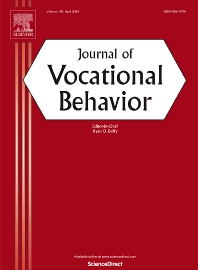Journals in Developmental and educational psychology
Journals in Developmental and educational psychology
- ISSN: 0022-0965
Journal of Experimental Child Psychology

- ISSN: 1499-4046
Journal of Nutrition Education and Behavior

- ISSN: 0022-4405
Journal of School Psychology

- ISSN: 0001-8791
Journal of Vocational Behavior

- ISSN: 1750-9467
Research in Autism

- ISSN: 0891-4222
Research in Developmental Disabilities

- ISSN: 1136-1034
Revista de Psicodidáctica

- ISSN: 2530-3805
Revista de Psicodidáctica (English Edition)

- ISSN: 2211-9493
Trends in Neuroscience and Education
